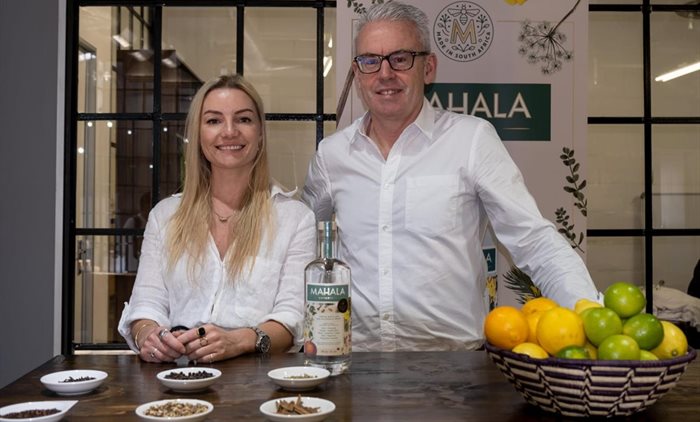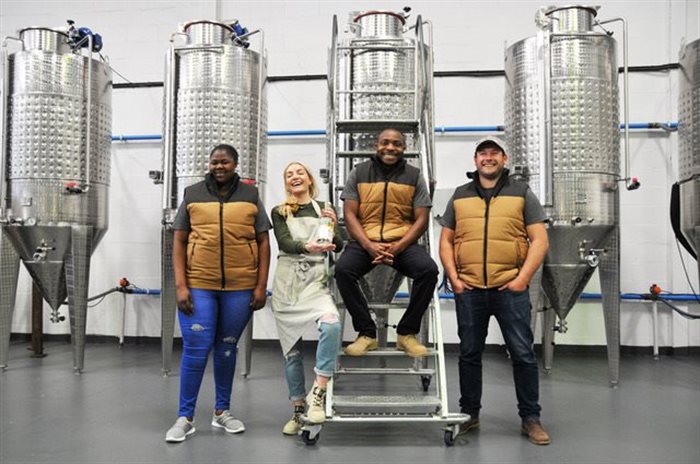
Top stories





Marketing & MediaBehind the campaign: Reframing fairness in ride-hailing: The inDrive success story
inDrive 6 hours

More news





















Despite being a small independent local brand, the drink has drawn international acclaim by winning the 2020 trophy medal for Best Low/No-Alcohol Spirit at the prestigious Michelangelo International Wines & Spirits Awards, in the same year of the product’s launch. At the time, Mahala
was still in a clear bottle with a handwritten label.
The local brand has recently expanded distribution to the UK.
The brains behind Mahala Botanical is Capetonian Danielle Schoeman, one of the country’s few female master distillers. The spirit, alongside a handful of other small brands, is produced in the craft distillery she owns in Cape Town.

Schoeman is joined in the Mahala Botanical venture by co-founder and director Paul Scanlon, who served as Pernod Ricard South Africa's managing director for four years, but quietly resigned in the midst of the company shifting its headquarters from Cape Town to Johannesburg.
After more than 20 successful years at Pernod Ricard, Scanlon set up his own beverage consultancy and since then has worked with both startups and leading premium gin, rum, hard seltzer and alcohol-free spirit brands to develop and grow their business.
His belief in the quality of spirit that Schoeman had created with Mahala, along with his interest in the no/low beverage category and his passion for South Africa drew Scanlon to partner with Schoeman to launch the Mahala Botanical brand.
Based in the UK now, Scanlon leads the business from there while Schoeman runs operations locally.
In Schoeman’s unassuming Dona Distillery, located in a quiet street in Montague Gardens, Cape Town, the Mahala team produces, bottles and labels up to 400 bottles of Mahala Botanical per day.
The nine botanicals used in the spirit are sourced from Schoeman’s family farm in Stilbaai, then macerated in a high-proof spirit to extract the flavours. Water is added and the alcohol removed before further distillation in Dona’s custom-made stainless steel vacuum stills.
“We own the entire process from foraging the botanicals to distilling and bottling, and we hand label every bottle,” says Schoeman.

Schoeman, in fact, comes from an investment management background. She explains to Bizcommunity that it was on a visit to Mexico when she tasted “real tequila” that she became intrigued by the process of producing a spirit from a plant. Experimentation in this area kicked off shortly after, and seems to have paid off for the award-winning master distiller.
"A lot was self-taught, research and trial and error. I also learned from industry experts on the job and local farmers about harvesting and growing local botanicals (and how to drive a tractor). I learned from winemakers about different yeasts and fermentation; from other distillers, I learned about the distillation process; and from engineers, about building the stills and programming the equipment," explains Schoeman.
She established Dona Distillery in 2019 with the dream to disrupt the industry with custom-built vacuum stills (the only ones in Africa at the time) and an ambition to bring new and exciting spirits to the local and international markets.
With Mahala, she sought to offer people who don’t want to consume alcohol with a sophisticated alternative that has all the nuances and flavours of an alcoholic drink.
The resulting clear spirit is complex and layered with aromas of spices and subtle florals with a herbaceous and long citrus finish.
The name ‘Mahala’, meaning ‘free’ in Zulu, references the fact that the spirit is free from alcohol, sugar, colourants and additives.
The Covid-19 pandemic accelerated an already popular trend toward health and wellness, and 'sober-curiosity' is on the increase with a growing global audience of moderate drinkers or complete abstainers. There are now numerous dedicated no/low bars and stores abroad in countries like the US, UK and Ireland, which stock only non-alcoholic brands.
Gone are the days when alcohol-free drinks lacked the sensory appeal of their alcoholic counterparts. Now, brands like Mahala Botanical and Seedlip are serving up premium, beautifully-packaged, great-tasting drinks catering to the growing number of mindful and health-conscious consumers.
According to a study by IWSR Drinks Market Analysis, the market value of no/low alcohol beverages grew to almost $10bn in 2021 from $7.8bn in 2018, and the IWSR forecasts that no- and low-alcohol volume will grow by 8% CAGR between 2021 and 2025.
Comments Scanlon, “The no and low sector has enjoyed exponential growth, fuelled by an increase in more moderate, healthy drinking habits amongst consumers. Not only does Mahala provide an exceptional quality and depth of taste, but we also own the complete ‘farm to glass’ process, affording us an incredible opportunity to ensure incomparable quality at every step of the process.”
Mahala Botanical is distributed in South Africa by premium liquor merchants Truman & Orange.
